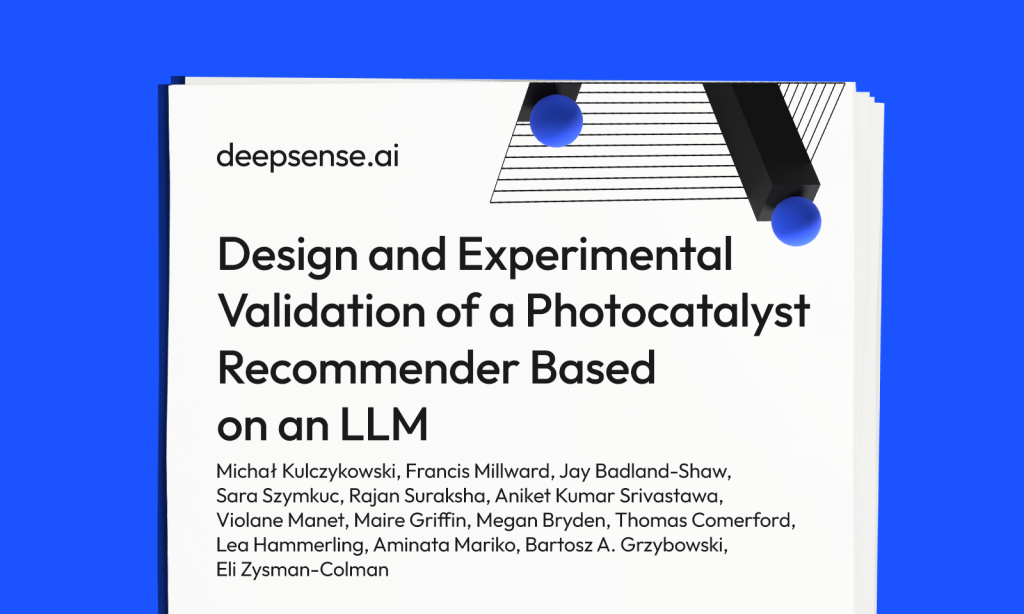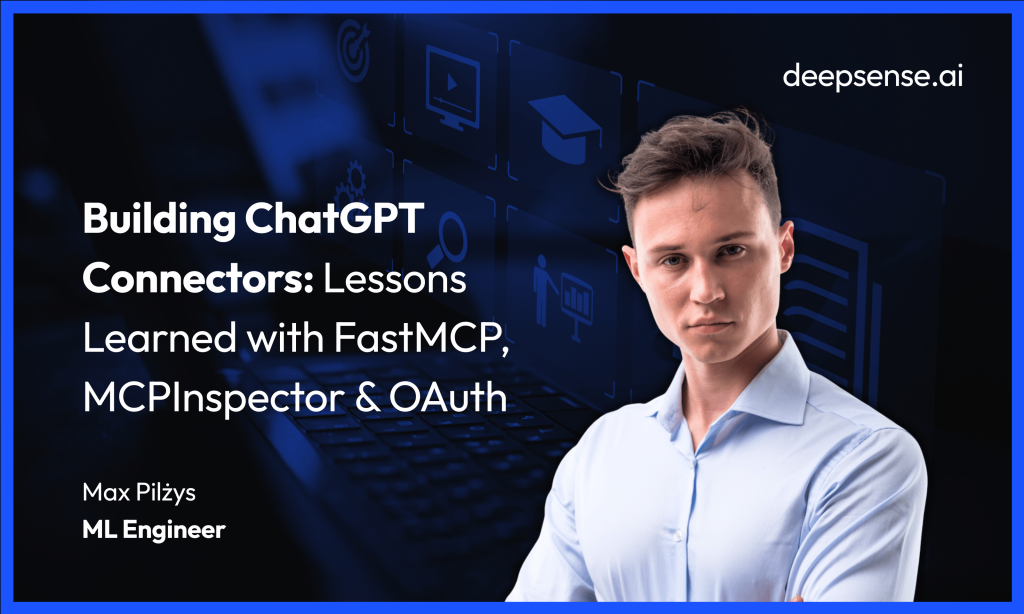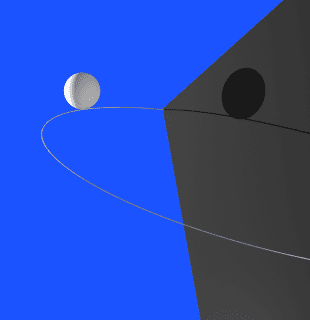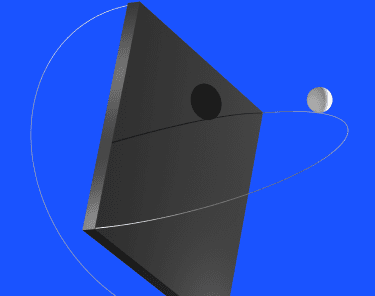
Read full paper
Details
Joint research with University of Warsaw, Ideas NCBR, Jagiellonian University, KAUST, Google Research & Stanford University, Polish Academy of Sciences; presented at ICLR 2023
- The researchers proposed Adaptive Subgoal Search (AdaSubS), a search algorithm that adjusts the planning horizon to match the local complexity of the problems solved.
- Complex reasoning problems contain states that vary in terms of the computational cost required to determine the right action plan. To take advantage of this property, Adaptive Subgoal Search (AdaSubS), a search method that adaptively adjusts the planning horizon, was proposed. To this end, AdaSubS generates diverse sets of subgoals at different distances. A verification mechanism is employed to swiftly filter out unreachable subgoals, making it possible to focus on other more feasible subgoals. In this way, AdaSubS benefits from the efficiency of planning with longer-term subgoals and the fine control with shorter-term ones, and thus scales well to difficult planning problems.
- The research shows that AdaSubS significantly surpasses hierarchical planning algorithms based on results from three complex reasoning tasks: Sokoban, the Rubik’s Cube, and the inequality-proving benchmark INT.
Authors: Michał Zawalski, Michał Tyrolski, Konrad Czechowski, Tomasz Odrzygóźdź, Damian Stachura, Piotr Piękos, Yuhuai Wu, Łukasz Kuciński, Piotr Miłoś
Abstract
Complex reasoning problems contain states that vary in the computational cost required to determine the right action plan. To take advantage of this property, we propose Adaptive Subgoal Search (AdaSubS), a search method that adaptively adjusts the planning horizon. To this end, AdaSubS generates diverse sets of subgoals at different distances. A verification mechanism is employed to filter out unreachable subgoals swiftly, making it possible to focus on feasible further subgoals. In this way, AdaSubS benefits from the efficiency of planning with longerterm subgoals and the fine control with shorter-term ones, and thus scales well to difficult planning problems. We show that AdaSubS significantly surpasses hierarchical planning algorithms on three complex reasoning tasks: Sokoban, the Rubik’s Cube, and the inequality-proving benchmark INT.
References
- Forest Agostinelli, Stephen McAleer, Alexander Shmakov, and Pierre Baldi. Solving the rubik’s cube with deep reinforcement learning and search. Nature Machine Intelligence, 1(8):356–363, 2019.
- Michael Ahn, Anthony Brohan, Noah Brown, Yevgen Chebotar, Omar Cortes, Byron David, Chelsea Finn, Keerthana Gopalakrishnan, Karol Hausman, Alex Herzog, Daniel Ho, Jasmine Hsu, Julian Ibarz, Brian Ichter, Alex Irpan, Eric Jang, Rosario Jauregui Ruano, Kyle Jeffrey, Sally Jesmonth, Nikhil J Joshi, Ryan Julian, Dmitry Kalashnikov, Yuheng Kuang, Kuang-Huei Lee, Sergey Levine, Yao Lu, Linda Luu, Carolina Parada, Peter Pastor, Jornell Quiambao, Kanishka Rao, Jarek Rettinghouse, Diego Reyes, Pierre Sermanet, Nicolas Sievers, Clayton Tan, Alexander Toshev, Vincent Vanhoucke, Fei Xia, Ted Xiao, Peng Xu, Sichun Xu, and Mengyuan Yan. Do as i can, not as i say: Grounding language in robotic affordances, 2022. URL https://arxiv.org/abs/2204.01691.
- Cameron Allen, Michael Katz, Tim Klinger, George Konidaris, Matthew Riemer, and Gerald Tesauro. Efficient black-box planning using macro-actions with focused effects. IJCAI-21, 2021.
- Marcin Andrychowicz, Anton Raichuk, Piotr Stanczyk, Manu Orsini, Sertan Girgin, Raphaël Marinier, Léonard Hussenot, Matthieu Geist, Olivier Pietquin, Marcin Michalski, Sylvain Gelly, and Olivier Bachem. What matters in on-policy reinforcement learning? A large-scale empirical study. CoRR, abs/2006.05990, 2020. URL https://arxiv.org/abs/2006.05990.
- Clemens Büchner, Patrick Ferber, Jendrik Seipp, and Malte Helmert. A comparison of abstraction heuristics for rubik’s cube. In ICAPS 2022 Workshop on Heuristics and Search for Domain-independent Planning, 2022.
- Rich Caruana. Multitask learning. Springer, 1998.
- Karl Cobbe, Vineet Kosaraju, Mohammad Bavarian, Jacob Hilton, Reiichiro Nakano, Christopher Hesse, and John Schulman. Training verifiers to solve math word problems. arXiv preprint arXiv:2110.14168, 2021.
- Thomas H Cormen, Charles E Leiserson, Ronald L Rivest, and Clifford Stein. Introduction to algorithms. MIT press, 2009.
- Konrad Czechowski, Tomasz Odrzygó´zd´z, Marek Zbysinski, Michał Zawalski, Krzysztof Olejnik, ´
- Yuhuai Wu, Łukasz Kucinski, and Piotr Miło ´ s. Subgoal search for complex reasoning tasks. Advances in Neural Information Processing Systems, 34:624–638, 2021.
- Yan Duan, John Schulman, Xi Chen, Peter L Bartlett, Ilya Sutskever, and Pieter Abbeel. RL2: Fast reinforcement learning via slow reinforcement learning. arXiv preprint arXiv:1611.02779, 2016.
- Kuan Fang, Yuke Zhu, Animesh Garg, Silvio Savarese, and Li Fei-Fei. Dynamics learning with cascaded variational inference for multi-step manipulation. arXiv preprint arXiv:1910.13395, 2019.
- Alan Fern, Roni Khardon, and Prasad Tadepalli. The first learning track of the international planning competition. Machine Learning, 84(1-2):81–107, 2011.
- Maximilian Fickert. Adaptive search techniques in ai planning and heuristic search. 2022.
- Wei Gao, David Hsu, Wee Sun Lee, Shengmei Shen, and Karthikk Subramanian. Intention-net: Integrating planning and deep learning for goal-directed autonomous navigation. In 1st Annual Conference on Robot Learning, CoRL 2017, Mountain View, California, USA, November 13-15, 2017, Proceedings, volume 78 of Proceedings of Machine Learning Research, pp. 185–194. PMLR, 2017. URL http://proceedings.mlr.press/v78/gao17a.html.
- Arthur Guez, Mehdi Mirza, Karol Gregor, Rishabh Kabra, Sébastien Racanière, Théophane Weber, David Raposo, Adam Santoro, Laurent Orseau, Tom Eccles, et al. An investigation of model-free planning. In International Conference on Machine Learning, pp. 2464–2473. PMLR, 2019.
- Malte Helmert. The fast downward planning system. Journal of Artificial Intelligence Research, 26: 191–246, 2006.
- Matteo Hessel, Hubert Soyer, Lasse Espeholt, Wojciech Czarnecki, Simon Schmitt, and Hado van Hasselt. Multi-task deep reinforcement learning with popart. In Proceedings of the AAAI Conference on Artificial Intelligence, volume 33, pp. 3796–3803, 2019.
- Jeffrey R Hollerman, Leon Tremblay, and Wolfram Schultz. Involvement of basal ganglia and orbitofrontal cortex in goal-directed behavior. Progress in brain research, 126:193–215, 2000.
- Dinesh Jayaraman, Frederik Ebert, Alexei A. Efros, and Sergey Levine. Time-agnostic prediction: Predicting predictable video frames. In 7th International Conference on Learning Representations, ICLR 2019, New Orleans, LA, USA, May 6-9, 2019. OpenReview.net, 2019. URL https://openreview.net/forum?id=SyzVb3CcFX.
- Tom Jurgenson, Or Avner, Edward Groshev, and Aviv Tamar. Sub-goal trees a framework for goalbased reinforcement learning. In International Conference on Machine Learning, pp. 5020–5030. PMLR, 2020.
- Leslie Pack Kaelbling. Learning to achieve goals. In Ruzena Bajcsy (ed.), Proceedings of the 13th International Joint Conference on Artificial Intelligence. Chambéry, France, August 28 – September 3, 1993, pp. 1094–1099. Morgan Kaufmann, 1993.
- Taesup Kim, Sungjin Ahn, and Yoshua Bengio. Variational temporal abstraction. In Hanna M. Wallach, Hugo Larochelle, Alina Beygelzimer, Florence d’Alché-Buc, Emily B. Fox, and Roman Garnett (eds.), Advances in Neural Information Processing Systems 32: Annual Conference on Neural Information Processing Systems 2019, NeurIPS 2019, December 8-14, 2019, Vancouver, BC, Canada, pp. 11566–11575, 2019. URL https://proceedings.neurips.cc/paper/2019/hash/b5d3ad899f70013367f24e0b1fa75944-Abstract.html.
- Sven Koenig and Maxim Likhachev. Real-time adaptive a. In Proceedings of the fifth international joint conference on Autonomous agents and multiagent systems, pp. 281–288, 2006.
- Richard E Korf. Finding optimal solutions to rubik’s cube using pattern databases. In AAAI/IAAI, pp. 700–705, 1997.
- Thanard Kurutach, Aviv Tamar, Ge Yang, Stuart J. Russell, and Pieter Abbeel. Learning plannable representations with causal infogan. In Samy Bengio, Hanna M. Wallach, Hugo Larochelle, Kristen Grauman, Nicolò Cesa-Bianchi, and Roman Garnett (eds.), Advances in Neural Information Processing Systems 31: Annual Conference on Neural Information Processing Systems 2018, NeurIPS 2018, December 3-8, 2018, Montréal, Canada, pp. 8747–8758, 2018. URL https://proceedings.neurips.cc/paper/2018/hash/08aac6ac98e59e523995c161e57875f5-Abstract.html.
- Nir Lipovetzky and Hector Geffner. Width and serialization of classical planning problems. In ECAI 2012, pp. 540–545. IOS Press, 2012.
- Kara Liu, Thanard Kurutach, Christine Tung, Pieter Abbeel, and Aviv Tamar. Hallucinative topological memory for zero-shot visual planning. In Proceedings of the 37th International Conference on Machine Learning, ICML 2020, 13-18 July 2020, Virtual Event, volume 119 of Proceedings of Machine Learning Research, pp. 6259–6270. PMLR, 2020a. URL http://proceedings.mlr.press/v119/liu20h.html.
- Yinhan Liu, Jiatao Gu, Naman Goyal, Xian Li, Sergey Edunov, Marjan Ghazvininejad, Mike Lewis, and Luke Zettlemoyer. Multilingual denoising pre-training for neural machine translation. CoRR, abs/2001.08210, 2020b. URL https://arxiv.org/abs/2001.08210.
- Amol Mandhane, Anton Zhernov, Maribeth Rauh, Chenjie Gu, Miaosen Wang, Flora Xue, Wendy Shang, Derek Pang, Rene Claus, Ching-Han Chiang, et al. Muzero with self-competition for rate control in vp9 video compression. arXiv preprint arXiv:2202.06626, 2022.
- Drew McDermott, Malik Ghallab, Adele Howe, Craig Knoblock, Ashwin Ram, Manuela Veloso, Daniel Weld, and David Wilkins. PDDL – The Planning Domain Definition Language, 1998.
- Piotr Miłos, Łukasz Kucinski, Konrad Czechowski, Piotr Kozakowski, and Maciek Klimek. Uncertainty-sensitive learning and planning with ensembles. arXiv preprint arXiv:1912.09996, 2019.
- Bharath Muppasani, Vishal Pallagani, Kausik Lakkaraju, Biplav Srivastava, and Forest Agostinelli. Solving the rubik’s cube with a pddl planner. 2022.
- Suraj Nair and Chelsea Finn. Hierarchical foresight: Self-supervised learning of long-horizon tasks via visual subgoal generation. In 8th International Conference on Learning Representations, ICLR 2020, Addis Ababa, Ethiopia, April 26-30, 2020. OpenReview.net, 2020. URL https://openreview.net/forum?id=H1gzR2VKDH.
- Giambattista Parascandolo, Lars Buesing, Josh Merel, Leonard Hasenclever, John Aslanides, Jessica B Hamrick, Nicolas Heess, Alexander Neitz, and Theophane Weber. Divide-and-conquer monte carlo tree search for goal-directed planning. arXiv preprint arXiv:2004.11410, 2020.
- Judea Pearl. Heuristics: intelligent search strategies for computer problem solving. Addison-Wesley Longman Publishing Co., Inc., 1984.
- Karl Pertsch, Oleh Rybkin, Frederik Ebert, Shenghao Zhou, Dinesh Jayaraman, Chelsea Finn, and Sergey Levine. Long-horizon visual planning with goal-conditioned hierarchical predictors. In Hugo Larochelle, Marc’Aurelio Ranzato, Raia Hadsell, Maria-Florina Balcan, and Hsuan-Tien Lin (eds.), Advances in Neural Information Processing Systems 33: Annual Conference on Neural Information Processing Systems 2020, NeurIPS 2020, December 6-12, 2020, virtual, 2020a. URL https://proceedings.neurips.cc/paper/2020/hash/c8d3a760ebab631565f8509d84b3b3f1-Abstract.html.
- Karl Pertsch, Oleh Rybkin, Jingyun Yang, Shenghao Zhou, Konstantinos G. Derpanis, Kostas Daniilidis, Joseph J. Lim, and Andrew Jaegle. Keyframing the future: Keyframe discovery for visual prediction and planning. In Alexandre M. Bayen, Ali Jadbabaie, George J. Pappas, Pablo A. Parrilo, Benjamin Recht, Claire J. Tomlin, and Melanie N. Zeilinger (eds.), Proceedings of the 2nd Annual Conference on Learning for Dynamics and Control, L4DC 2020, Online Event, Berkeley, CA, USA, 11-12 June 2020, volume 120 of Proceedings of Machine Learning Research, pp. 969–PMLR, 2020b. URL http://proceedings.mlr.press/v120/pertsch20a.
html. - Stanislas Polu and Ilya Sutskever. Generative language modeling for automated theorem proving.arXiv preprint arXiv:2009.03393, 2020.
- Silvia Richter and Matthias Westphal. The lama planner: Guiding cost-based anytime planning with landmarks. Journal of Artificial Intelligence Research, 39:127–177, 2010.
- Stuart Russell and Peter Norvig. Artificial intelligence: A modern approach. ed. 3. 2010.
- Nikolay Savinov, Alexey Dosovitskiy, and Vladlen Koltun. Semi-parametric topological memory for navigation. In 6th International Conference on Learning Representations, ICLR 2018, Vancouver,
BC, Canada, April 30 – May 3, 2018, Conference Track Proceedings. OpenReview.net, 2018. URL https://openreview.net/forum?id=SygwwGbRW. - Julian Schrittwieser, Ioannis Antonoglou, Thomas Hubert, Karen Simonyan, Laurent Sifre, Simon Schmitt, Arthur Guez, Edward Lockhart, Demis Hassabis, Thore Graepel, Timothy P. Lillicrap, and David Silver. Mastering atari, go, chess and shogi by planning with a learned model. ArXiv,abs/1911.08265, 2019.
- David Silver, Thomas Hubert, Julian Schrittwieser, Ioannis Antonoglou, Matthew Lai, Arthur Guez, Marc Lanctot, Laurent Sifre, Dharshan Kumaran, Thore Graepel, Timothy P. Lillicrap, Karen Simonyan, and Demis Hassabis. Mastering chess and shogi by self-play with a general reinforcement learning algorithm. ArXiv, abs/1712.01815, 2017.
- Jane X Wang, Zeb Kurth-Nelson, Dhruva Tirumala, Hubert Soyer, Joel Z Leibo, Remi Munos, Charles Blundell, Dharshan Kumaran, and Matt Botvinick. Learning to reinforcement learn.arXiv preprint arXiv:1611.05763, 2016.
- Yuhuai Wu, Albert Q. Jiang, Jimmy Ba, and Roger Baker Grosse. INT: an inequality benchmark for evaluating generalization in theorem proving. In 9th International Conference on Learning Representations, ICLR 2021, Virtual Event, Austria, May 3-7, 2021. OpenReview.net, 2021. URL https://openreview.net/forum?id=O6LPudowNQm.
- Tianhe Yu, Deirdre Quillen, Zhanpeng He, Ryan Julian, Karol Hausman, Chelsea Finn, and Sergey Levine. Meta-world: A benchmark and evaluation for multi-task and meta reinforcement learning. In Conference on robot learning, pp. 1094–1100. PMLR, 2020.
- Lunjun Zhang, Ge Yang, and Bradly C. Stadie. World model as a graph: Learning latent landmarks for planning. CoRR, abs/2011.12491, 2020. URL https://arxiv.org/abs/2011.12491.





